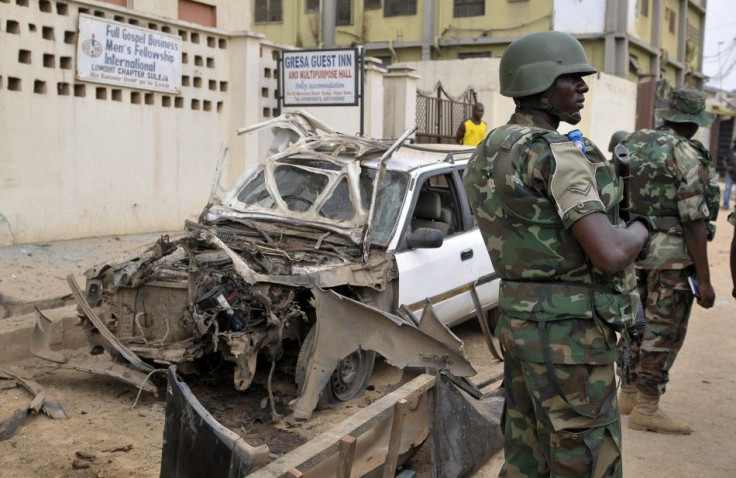Nigeria: Boko Haram Members Killed in Market Gunfight

At least 30 people were killed in Nigeria on Monday when suspected Boko Haram militants attacked the Baga Road fish market in the northern city of Maiduguri.
The insurgents, allegedly part of the radical Islamic sect that has been terrorizing Nigeria for over a year, stormed the market and opened fire on store owners and shoppers.
With state security troops now patrolling many northern Nigerian cities, there was a quick response from the military -- government soldiers engaged in battle with the militants in the market.
Our men engaged members of the Boko Haram sect in gun battle and we successfully killed eight of the sect members and recovered weapons, army spokesman Hassan Mohammed told reporters.
The military's view of the incident differs from nearly all other eports. According to a spokesperson from the Joint Task Force (JTF) -- a coalition made of up police and military personnel -- no civilians were killed in the attack, although several were wounded.
The [wounded] civilians have been taken to hospital where they are receiving treatment while the market has been cordoned off, Mohammed told Reuters.
Two explosions were also heard in the fish market. The JTF said the blasts were from the controlled detonation of confiscated bombs, but others reported that the explosions were part of Boko Haram's attack.
A few minutes after [the first explosion], one of my brothers shouted 'Oh! they have killed me', then another one similarly shouted, 'they have also shot me'. That was when I fled, a fish vendor told Agence France Presse.
Boko Haram is the informal name for the People Committed to the Propagation of the Prophet's Teachings and Jihad, an Islamic rebel group based in northern Nigeria that seeks to establish sharia law across the whole nation.
Boko Haram, which means Western education is a sin in the Hausa language, started its current wave of attacks in 2009, but only recently positioned itself as a serious threat to national security. The group carries out regular attacks on government officials, police and civilians. Boko Haram is generally in the north but has been steadily moving its militancy south.
Before the market raid, the most recent attack occurred on Sunday in Suleja, a suburb of Abuja. Five people were wounded with a bomb exploded next to a church.
More than 200 people have been killed in the first two months of 2012, including 178 after a series of bombings in Kano in January -- Boko Haram's deadliest attack to date. In 2011, about 500 people were killed by the rebels.
To counter the crescendo of violence and militancy, Nigerian President Goodluck Jonathan has increased the security presence in the northern cites where the group is most active. However, the crackdown has done little to curb the attacks and, as on Monday, the JTF often engages with militants in public shootouts.
Additionally, there are sporadic reports that Task Force operatives have been killing suspects during house-to-house raids. Nigerian media outlet Premium Times reported last month that a suspect named Uzairu Abba Abdullahi and his pregnant wife were summarily executed in the city of Kano.
Unhappy with the JTF's results, some local officials have taken to other measures try to stop the insurgency. Lagos state governor Babatunde Fashola, expressing his grave concern over the lack of adequate security measures in place and clearly thinking about the increase in religious violence, has limited worship to just two places -- the Central Mosque and the Chapel of Christ the Light.
Although Boko Haram has largely stayed clear of Lagos, which is on the southern tip of Nigeria, Fashola has also petitioned the state's Ministry of Transportation to remove all abandoned and unauthorized vehicles from his secretariat, according to Vanguard.
© Copyright IBTimes 2024. All rights reserved.











